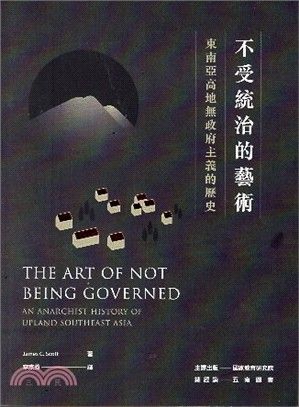是日流水帳:一本書如何通向另外一本書
一篇文章連結
早上收到一篇文章連結:贊米亞正面臨消亡危機,作者是陳可樂。
文章首先解釋贊米亞是什麼:
贊米亞(Zomia)是人類學家對中南亞半島山地的稱呼,它是一個非現代國家的地理概念,而是橫跨了六個國家 — — 越南、柬埔寨、老撾(寮國)、泰國、緬甸,以及中國的雲南、貴州、廣西、四川等四個省份。

然後其實就是在引用、介紹耶魯大學人類學教授James Scott的研究《不受統治的藝術:東南亞高地無政府主義的歷史The Art of Not Being Governed》。
贊米亞橫跨二百五十萬平方公里,遊走在其間的各個少數民族人口多達一億人。構成這些人口的,主要是歷代逃避各國極權政府的流亡者。
雖然是第一次聽到贊米亞這個名詞,但一聽作者解釋,就立刻覺得有趣,很多段落都很有意思,比方說:
由於贊米亞的人是各朝代逃亡者的後代,他們對於變得「文明」不感興趣。而一些平地人(如漢人)更會自我蠻夷化來與朝廷對立。他們說不同的語言,信不同的宗教,有不一樣的政治模式,在每一個朝代都與管治者保持距離。因此,被視為「蠻夷」,反而對他們是最有利的。
(這篇文章也有提到劉紹華的《我的涼山兄弟︰毒品、愛滋與流動青年》,另外一本我有mental log一陣子的書,可能就差那臨門一腳了)
白天又再重新看了一次文章,找了一下我平常會查的英文資源(圖書館、Amazon Kindle),確認我有辦法弄到這本書之後,我就按例去了我最喜歡的關於書的網站:Five Books
我的私房尋書資源
Five Books是我的阿拉丁寶窟跟秘密武器,它的作法就是找各個領域的專家、作家、學者,推薦五本書,然後用Q&A 訪談的方式聊那五本書。不限年代,從荷馬史詩到最新版的作品都有,也涵蓋各種題材,從尼采到存在主義,從食物史到旅遊文學,當然也有加密貨幣跟區塊鏈。
我一直覺得那是最理想的推書、找書網站,我不太追新書,好的書本來就沒有時效性,像這樣透過主題發現書,或者可以去搜尋自己有興趣的領域的書,對我來說是最理想的「找到下一本書」的方式:同時具備偶遇性但又有系統性。
比起一味地追新書,我一直也很希望能有一個中文書的網站可以用同樣的概念做起來,但也許台灣出版社的生態跟結構就是不允許,必須一直賣新書才能活下去,誰願意出錢做這種事。
不過Five Books本身也和出版社無關,它是非營利機構,除了透過網站在亞馬遜上購書可以讓他們賺一點分潤以外,都是靠捐獻——我之前曾想過可以寫一篇類似「如何找到下一本書」、「我都如何找書」的文章,就可以好好介紹它,不過這麼正經題材或是這麼工具箱的文章很像寫作業一想到就會讓人想拖,乾脆這樣擇日不如撞日也算完事了。
(備註:Five Books以推薦英文書為主,如果是外語書,則是有英文翻譯的,很偶而才會出現尚未被翻譯成英文的作品)
一本書如何通向另外一本書(或很多本書)
在Five Books查找James Scott的名字之後,然後:賓果,真的有!
在這篇The Best Books on Minority Survival in China的文章裡,第一本選書就是James Scott的這本The Art of Not Being Governed:
I love Scott, he’s one of my favourite authors. This book focuses on ‘Zomia.’ His argument is that what we now think of as the ‘tribal people’ or ‘minorities’—like the Hmong—were originally people who went up into the hills to avoid the reach of settled empires. These peoples, he argues, used all kinds of strategies to avoid becoming part of empires.
很好,這樣我就可以確認這本書值得追下去——我有時會用Five Books確認我看到的中文書訊是否可信,畢竟現在出版社都太會打書,每次書訊都寫的比書本身好看,像《帝國與料理Cuisine and Empire》我就是先看到中文書訊,上Five Books確認它真的很棒,然後才去圖書館挖出來的)
同一篇文章下的第三本選書是《狼圖騰》,雖然訪談者覺得那本書普普、不怎麼樣,就是漢族對蒙古人的野性呼喚民族性的投射,但因為在中國很紅所以有一定意義、或至少可以反映什麼。
然後第四本是《The Sacred Routes of Uyghur History》,作者是Rian Thum
提到講維吾爾人如何「建構」身份,簡直怵目驚心充滿預言性(不知道這個interview是哪一年做的,感覺有點年代):
For him, ethnic identities aren’t fixed. They’re strategies you adapt your reality towards and you play up and play down parts of them to cope with realities of the day. What Scott doesn’t really talk about that you have now is this keen oppositional identity. A lot of Uighur I know now, even in Beijing, won’t eat in Han restaurants and will associate with Chinese as little as possible. This is something that has changed. There has been lots of mixing historically, but because of the rigor of the rule in Xinjiang, where you have this really brutal crackdown, people’s identities are becoming stronger. Uighur meaning ‘not Chinese’ is getting more powerful by the year.
The strategy is counterproductive. It causes more Uighur identity to survive in the long run, but it feels like a dead end for the Uighur. They’ve been forced into it because there’s no space for having a more accepting Uighur identity. It’s starting to take on strains of Salafist Islam and jihadism. It worries me when people define themselves narrowly. It leaves people who are half Uighur with this really hard position. When it’s a choice between being the happy, singing minority or this fierce anti-Chinese people, standing up for their self-respect, they pick the second one. We’re mostly talking about young men here. They most fiercely need that identity. They need to believe in something, and for a lot of young Uighur that something is being Uighur and not being Chinese.
最後一本是Peter Goullart的《Forgotten Kingdom》講麗江曾經展現納西族等少數民族混雜生活在一起最好的樣態(PRC之前),也很動人:
I wanted to finish on this book because I think it’s one of the most beautiful and productive images of minority life in China. Lijiang is this big trading, storytelling town where people are sitting down together, doing business, talking. He has this real sense of love for the place, for all these different peoples and for how dynamic it is.
The Maoists destroyed all the things that mattered to Lijiang and the Naxi. The festivals, the shrines, the stories, the trading, all of that was anathema to Maoist ideology of what a nation should be. It was wiped out as much as they could. They really shattered this dynamic place. People nowadays, many of them on the Han side, are trying to reconstruct and reimagine it.
反正五本書大概像這樣,可以拉出去很多連結。
可以找到很多下一本書,或是,即使沒有要去找訪談者提到的那些書來看——大部分時候我沒有辦法看那麼多書,有些題材我可能也不是有興趣到想要看一整本書,但當成book review讀,了解一下,現階段可能也就夠了。
最後一本書、碎碎念
這本書通向的另外一本書是,在找這本書的過程中,看到作者James Scott的最近一本書:《Against the Grain: A Deep History of the Earliest States》,一看書介,剛好打中我這幾年時不時會想到的事,一直以來,我最迷戀也最迷信的東西都是文明的產物:文字、藝術、各種cultural artefacts,但這幾年被迫重新反思創造所有我迷戀之物的美索不達米亞、帝國式文明,並不見得真的是homo sapien的進步,hunter-gatherer的生活沒有比較差(打臉霍布斯: no, the lives of the prehistorical people are not nasty, brutish or short. It is rather Hobbes, who, having lived through the horror of Interregnum and Cromwellian rule, projected the observation of how people fared in his own time, back into an imagined past),大部分的人其實當初都不想住在所謂文明的帝國\settlement裡(要繳稅、要服役、還很容易得傳染病死掉),都是「被迫」居多。所謂「野蠻人」的生活,其實彈性、靈活度大很多(想來他在做《不受統治的藝術》的研究時應該得到不少靈感)。
不過這本書扯到的東西有點大,我需要再多追一下這本書才能再說下去(感覺可以從這個框架重新玩味漢朝和匈奴的關係)。
現在有一個難處,James Scott同時有兩本書我都想讀,《Against the Grain》格局比較大,又剛好回應我在想的事,不過《不受統治的藝術》中文版貌似已絕版,如果讀了做點筆記不知道有沒有價值....。
嗯,在回答這個問題以前,我好像應該先回去把正在進行中的書看完。我近年來日益嚴重的壞習慣就是書一本一本地開,然後沒有一本讀完....。